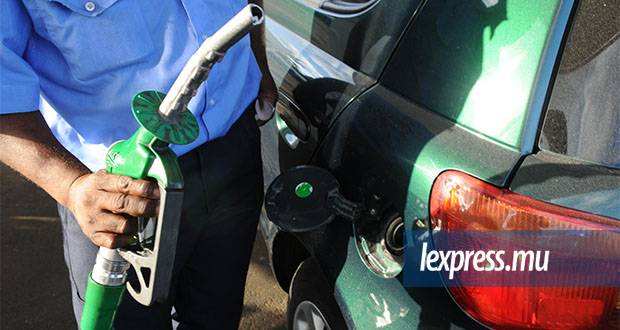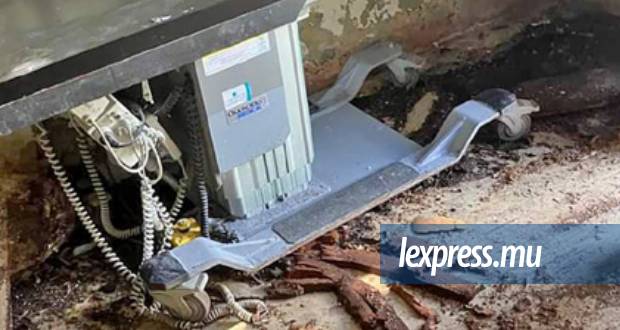Publicité
The Burning Paradise
Par
Partager cet article
The Burning Paradise

Taking a fully optimistic view of what Mark Twain wrote, “From one citizen you gather the idea that Mauritius was made first, and then Heaven; and that Heaven was copied after Mauritius” (1897), one might say that indeed Heaven was copied from Mauritius. With heavenly sceneries and community harmony, the warmth of Mauritius and its people, literally and figuratively, is legendary. What could not have been inferred from Twain’s description in “Following the equator” was that paradise island would slowly crumble due to the adverse impacts of climate change.
On 28 September 2015, Mauritius submitted its Climate Action Plan and Intended Nationally Determined Contributions ahead of the Paris Agreement. The Paris Agreement is a historical agreement between countries to combat climate change and to adapt to its impacts. In an ideal world, the Paris Agreement is a strong and reliable stepping stone towards a favorable global future. The deal is to keep the global temperature increase to well below 2 degrees Celsius (o C), and drive efforts to further prevent temperature increase to 1.5 degrees Celsius above pre-industrial levels. However, the limit of 1.5º C increase might be good but not enough in the real world, especially in SIDS (Small Islands Developing States), such as the Republic of Mauritius. Its Exclusive Economic Zone (EEZ) covers 1.9 million square kilometers off the coast of the islands of Mauritius, Rodrigues, St-Brandon, Agalega, Tromelin and the Chagos Archipelago.
And for a tiny dot in the ocean, that is a lot.
Indeed, this area is equivalent to almost one thousand times the size of the island of Mauritius. It has now been extended (by 0.4 million km2) following a recent agreement with the Seychelles, and comprises vast stocks of various fish species as well as aquatic flora and fauna. Climate change has had its toll on Mauritius, like any other SIDS islands. One just has to look at the disappearing islands of the Pacific, while they are still here, to have a glimpse of what lies ahead.
Global warming
The main culprit, global warming, can be defined, in very simple terms, as the average increase of earth’s temperature. But as surface temperature increased, so did the temperature of the surface oceans, as explained by Professor Edouard Bard during his visit to Mauritius prior to COP21 last year. Oceans are warming up. Imagine the tiny dot, Mauritius, in the midst of the warming ocean. Climate change and global warming have substantially affected and negatively impacted the coral reefs around Mauritius. These reefs play a very important role in the ecological and economical systems of the island. The Tourism industry and fisheries sector depend heavily on the good health and protection of these reefs, and the sea is a major carbon sink. Further, one geographical integrity and security can be compromised by the disappearance of these reefs, vital in our shoreline protection, as revealed during the tsunami of December 2004.
Also known as the rainforests of the oceans, coral reefs occupy only 0.7% of the ocean floor. However they act as a natural habitat and are vital nursery grounds which are responsible for building the largest biological structure on Earth – the Great Barrier Reef – around which concerns are being raised due to ocean acidification.
Coral reefs support more than 4,000 species of fish in Mauritius, including many locally-appreciated fish such as ‘Capitaine’ and ‘Vieille rouge’, octopuses, some 700 species of coral, and thousands of other plants and animals. They also protect shorelines from erosion, and from storm and waves damage. For example, it is estimated that each square meter of reef protects US$ 47,000 in property value in the United States.
One of the impacts of climate change in Mauritius is the increase of sea surface temperature on coral reefs. Corals are marine invertebrates that live in colonies of identical individuals called polyps. They live in a symbiotic relationship with a marine primary producer, an algae known as zooxanthellae.
The zooxanthellae manufacture food for the corals through the process of photosynthesis and transfers this energy directly to the coral’s tissue. When the temperature of the surface water increases, the symbiotic relationship between the coral and the zooxanthellae breaks down. The corals expel the zooxanthellae and start to weaken and eventually die.
Also, many of the corals are habitat for thousands of species of fish and other organisms. Corals can also be termed as major carbon sinks, where photosynthesis takes place, fixing large amounts of carbon dioxide and releasing energy to support organisms involved in the food chain.
Ocean acidification
Another impact would be ocean acidification. As the amount of carbon dioxide increases in the air through global warming, this carbon dioxide enters the sea surface through atmospheric dissolution. Carbon dioxide forms carbonate ions in seawater causing the water to become acidic, lowering its pH. Corals are formed from calcium carbonate, which starts to erode in acidic conditions, destroying the whole coral structure over time. Shells of mollusks are also corroded, resulting in loss in biodiversity. Mauritius has not been spared, with areas of coral bleaching all around the island.
Human intervention caused an acceleration in the disappearance of the dodo. Similarly, our actions are accelerating the damage caused to our island’s biodiversity and coral reefs. If I may be blunt enough, the local authorities have not considered or implemented any concrete solutions towards the conservation of marine biodiversity. On the other hand, many hotels are cropping up along coastal areas against the approval of the general public and the advocates of climate change.
Raising awarenss
As a young Mauritian, I am concerned about the serenity of my island even if I was not acquainted with the jargons of climate change advocacy.
However, I got to know more about the impacts of climate change through a climate change diplomacy and advocacy training workshop for commonwealth youth practitioners and advocates. It is quite unfortunate that the majority of the population of Mauritius is unaware of the impacts of climate change to our island and the damages that come with it.
It is the duty and responsibility of the Mauritian government to talk about the issues instead of turning a blind eye to it. Consequently, it is same for the citizens of our island to adopt a sustainable lifestyle. While many might argue that sustainability is not in our priority list as set against economic progress and development, I would suggest that we think about it. If we continue to play the priority card to delay the actions, we might lose much more.
Raising awareness on the adverse effects of climate change and the dangers it poses to our island and other SIDS might be a good start. Eventually, giving a helping hand to organizations which are already involved in finding sustainable solutions will boost the implementation. It is then only that we will be able to save our paradise from the flames.
If not you, who? If not now, when ?
Publicité
Les plus récents






